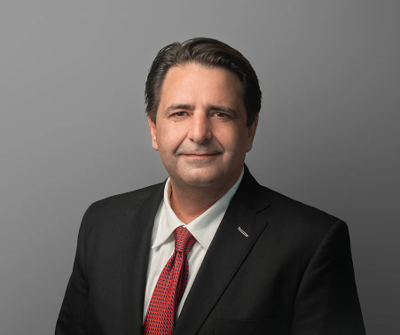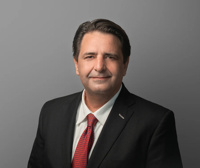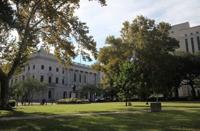
Protopapas
COLUMBIA, S.C. - An already tangled international legal fight in South Carolina grew more complicated as the lawyer appointed by a judge as receiver over a U.K. firm said he settled lawsuits against Anglo American and diamond giant DeBeers despite a U.K. court order prohibiting him from doing exactly that.
Peter Protopapas, a personal injury lawyer working under a contingency-fee arrangement, earlier this week announced he’d reached settlements of a lawsuit he filed in the name of Cape Intermediate Holdings, a unit of U.K.-based Altrad Group. As with previous settlements, Protopapas plans to store the money in a secretive trust, presumably for payment to asbestos plaintiffs as well as himself.
Altrad immediately protested against the purported settlement, sending letters to Anglo American and DeBeers warning them they would be violating a global injunction with potential criminal penalties if they carried through with the agreement. The U.K. High Court of Justice last year hit Protopapas with a $1.3 million penalty for illegally interfering in Cape’s business by accepting service and suing other companies in the name of Cape.
“Mr. Protopapas has no legal authority under private international law to enter into the Proposed Settlement for and on behalf of [Cape], or to receive or hold any monies to their benefit or on their behalf,” Altrad’s lawyers said in an Oct. 7 letter.
Protopapas sued Anglo American and DeBeers in the name of Cape to recover money he claims the companies owe for engaging in a long-running conspiracy to hide their control over Cape and evade liability for U.S. asbestos claims. Cape was once a South African asbestos mining company, although it ceased selling asbestos in the early 1980s. Altrad bought Cape in 2017.
Protopapas works under orders from Judge Jean H. Toal, a former chief justice of the South Carolina Supreme Court who now oversees the state’s asbestos docket. He has earned millions of dollars in fees by collecting money from insurance companies that once issued policies to long-defunct firms, storing much of it in Delaware partnerships that reveal nothing about how much they hold or how it is dispensed.
Judge Toal expanded her practice, from appointing Protopapas receiver from defunct companies with no owners, to solvent firms including Cape, which is owned by Altrad - a multinational industrial services company with more than $1 billion in revenue. That has prompted a vigorous legal response, as Altrad has won two rulings in the U.K. barring Protopapas from interfering with its business and is seeking $34 million in damages in France.
Judge Toal has been equally vigorous in her defense of Protopapas and her orders asserting jurisdiction over Cape, which is based in the island of Jersey and has never done business in South Carolina. She sanctioned Altrad for refusing to recognize her jurisdiction and has repeatedly ordered sanctions against other parties who appeal her rulings.
Altrad argues Protopapas isn’t a legal receiver over Cape, since he is acting in the name of a plaintiff who settled all litigation before Protopapas was appointed. The company also cites a recent South Carolina Supreme Court decision restricting receivers to collecting money for plaintiffs in a single case, and prohibiting them from usurping the power of company directors.
While Judge Toal has kept settlement amounts and disbursements secret under her agreements with Protopapas, the public record suggests he has collected tens of millions of dollars so far with authority to use it for “litigation expenses” including paying asbestos plaintiffs, their lawyers and himself.
Judge Toal has scheduled an Oct. 20 trial for Altrad as owner of Cape, despite the two entities having entered into a settlement eliminating all liability between them. That leaves Protopapas in the unusual situation of arguing in court, purportedly on behalf of Cape, that its corporate parent should pay Protopapas millions of dollars in damages for allegedly trying to evade liability in U.S. courts.
Protopapas has made these arguments without ever mentioning to the court Cape won a landmark decision in U.K. courts in the early 1990s refuting the claims he is making on Cape’s behalf.







